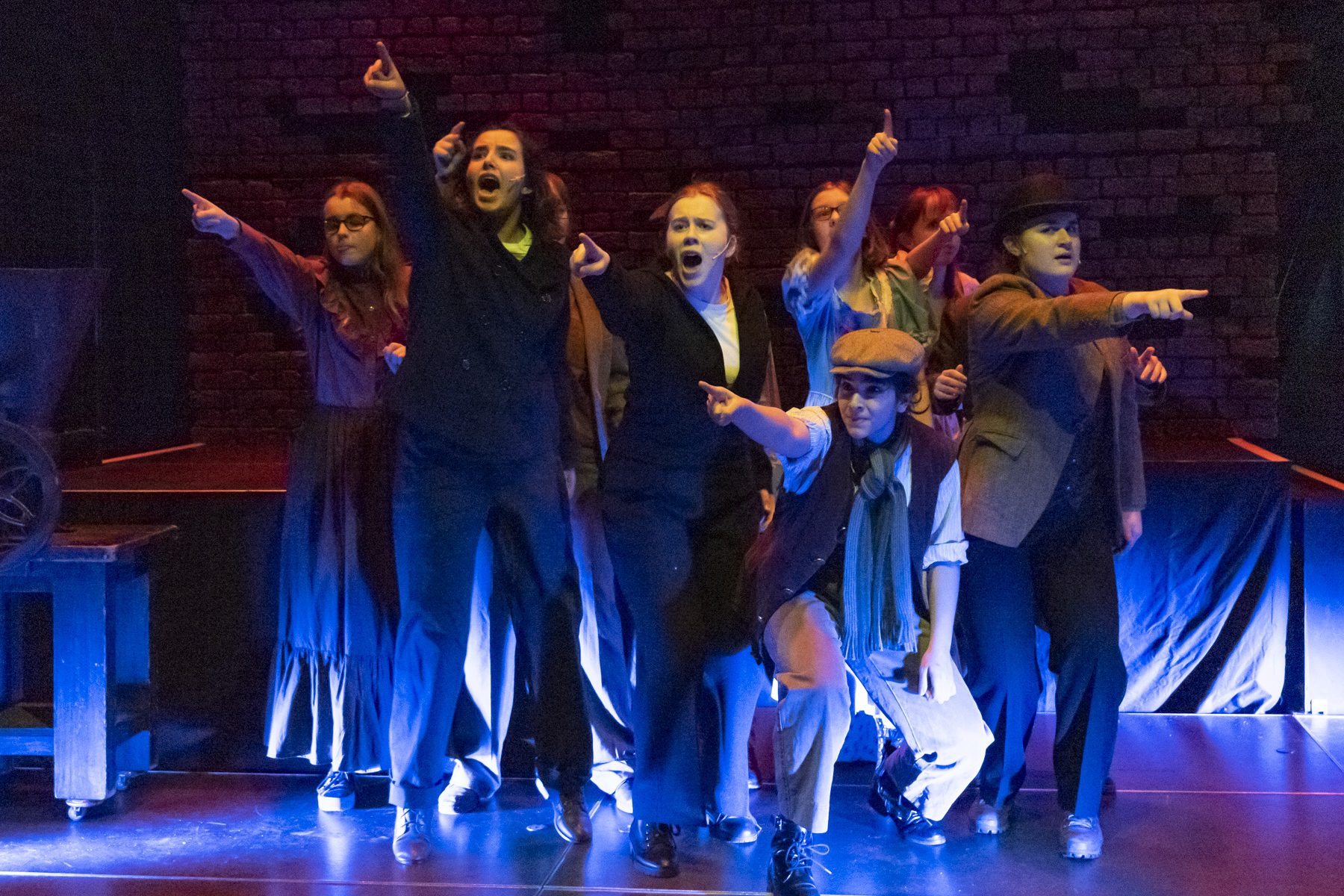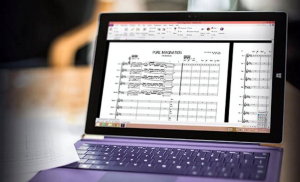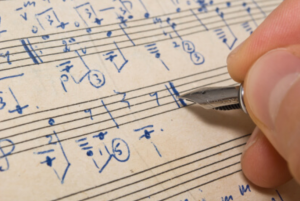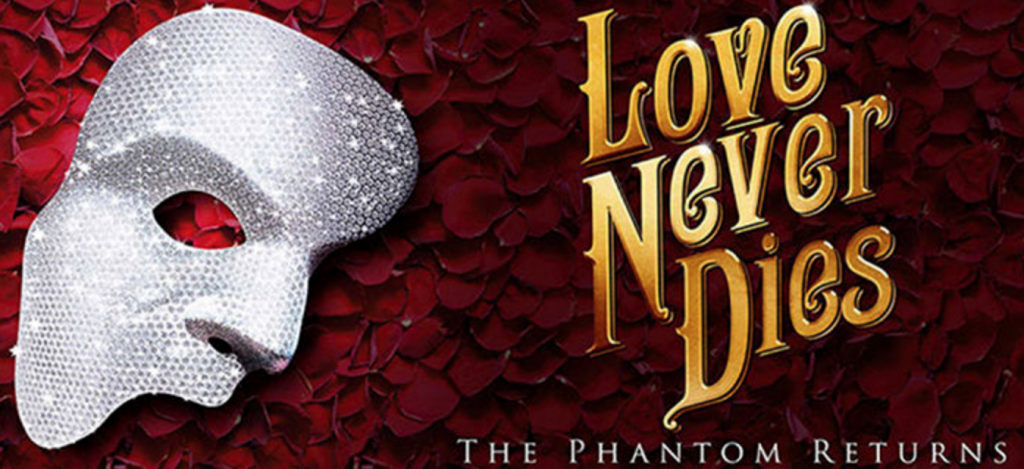Ms Katie Butler, Performing Arts Assistant, looks back to our recent Musical Theatre Concert here at WHS, as well as how we can engage different age groups in this popular form.
From Tap Dancing to Trunchbull
This year’s Musical Theatre Concert featured a selection of solos, duets and group numbers, with the very on-brand Wimbledon High theme of “Imagine”. This enabled us to tie numbers together through a common thread, while still allowing us to explore all sorts of different styles and stories. We hired in professional choreographer Lily Howkins to help create more specialised dance numbers, along with a brilliant three-piece band who really brought the music to life. This concert showcases the singing and dancing talents of girls across the senior school, providing a chance for Year 7s to perform with Sixth Formers, and for younger girls to have a taste of solo singing without the pressure of a whole show.
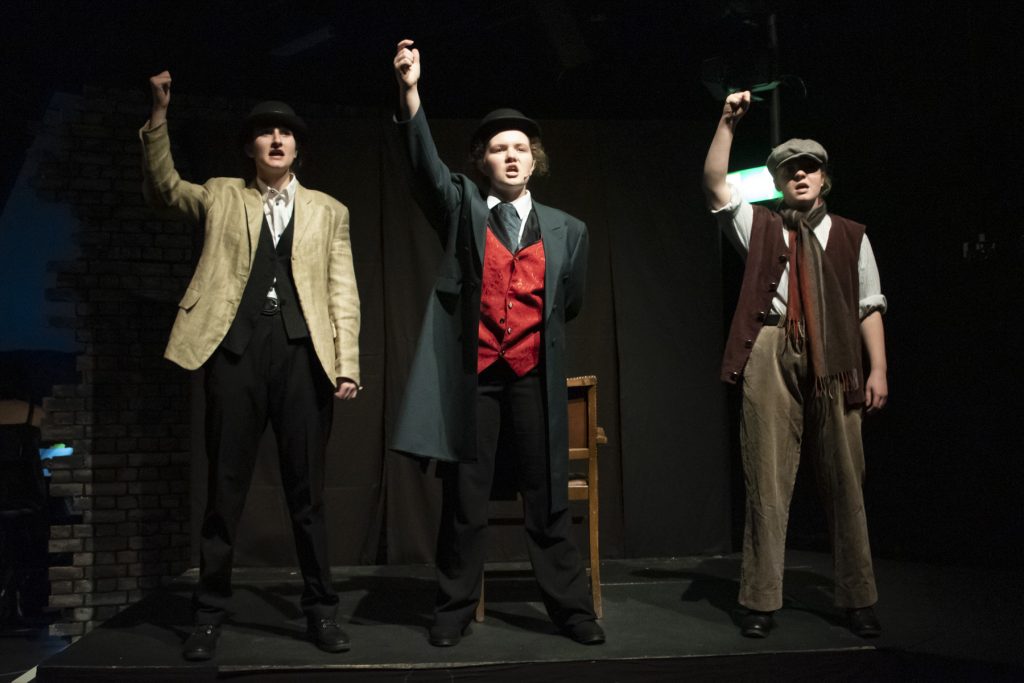
After Lilly and Emma kicked off the show with ‘Pure Imagination’ from Charlie and the Chocolate Factory, we enjoyed Year 8’s spectacular ‘Revolting Children’ from Matilda, featuring ten girls stepping out of their sensible Wimbledon High personas and into a rebellious, anti-Trunchbull mob, with ties tied around their heads and hockey sticks as weapons. We featured more Year 8 talent in the upbeat, energetic Hollywood party number ‘Someone in the Crowd’ from La La Land, with Lauren, Amelia, Phoebe and Alyssa combining pitch-perfect vocals with challenging choreography to their usual high standard.
Another choreography highlight was the tap-toed delight that was ‘Singin’ in the Rain’, with Melody and Lizzy’s vocals combined with the brilliant tap skills of Jasmine and Shangavi. Musical theatre stalwart Erin gave a convincing performance as Evan Hansen, showing real resilience and deftly taking on various characters throughout the night. Sweeney Todd’s ‘By the Sea’ and ‘Seventeen’ from Heathers were presented together, as despite the different musical styles and the twenty-five years between their creation, they explore very similar themes of women trying to convince murderous men to live a normal life with them. For the latter, Erin was joined by Lizzie, who also showcased her fantastic vocal versatility in the contrasting ‘I Feel Pretty’. All in all, it was a wonderful celebration of dramatic skill and musicianship from the entire WHS community.
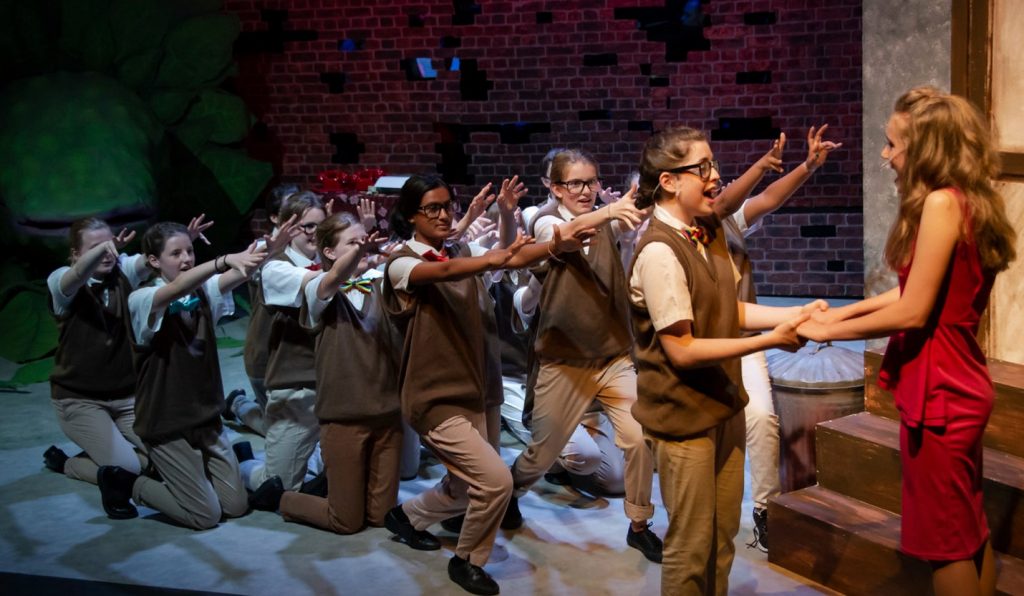
Curating a Programme
As a facilitator of these kinds of events, the challenge for me was to choose a programme that was varied, interesting, and age-appropriate, engaging all the girls. Appreciation of musical theatre, and indeed of all strands of the arts and storytelling deepens with age, maturity, and life experience, and personal development is particularly accelerated during these teenage years; it’s the reason that Year 11 can sob their way through Les Miserables, yet many Year 8s are twiddling their thumbs by ‘I Dreamed a Dream’, and I was keen to curate a concert that reflected this and provided something for everyone to enjoy.
While we had Year 12 Izzy performing the wistful ‘The Movie in My Mind’ from Miss Saigon, a ballad by a Thai showgirl during the Vietnam War dreaming of a better life, we also enjoyed Izzy from Year 8’s delicately beautiful rendition of ‘Jenny’s Piano Song’ from Howard Goodall’s little-known 2010 musical Love Story (an adaptation of the 1970 film), as well as Anna’s (Year 11) infectiously positive ‘I Can Hear the Bells’ from Hairspray.
The key to a successful programme is contrast – and so with powerhouse, belting performances like Anna’s and Eleni’s rendition of ‘Let Me Be Your Star’ from NBC’s Smash, we also had numbers like Anna’s (Year 13) genuine and engaging ‘I’m Not Afraid of Anything’ from Jason Robert Brown’s song cycle Songs for a New World, and Eleni’s other number, the vulnerable ‘When He Sees Me’ from Waitress, showing off her real versatility as an actress, and brilliant comic timing.
Other performances included the wittily staged ‘Show Off’ from The Drowsy Chaperone by Jasmine & Lilly in Year 12, and the always brilliant Musical Theatre Choir taking on an arrangement of Hamilton’s Helpless that even girls much older and more experienced would have found challenging. As Year 7 girls took to the stage with a lively Disney medley, featuring solos from Melina, Martha, Hannah and Sophia, it was clear that the future of musical theatre at Wimbledon High is in very safe hands. We ended the show with two more similar numbers: ‘The Life I Never Led’ from Sister Act and ‘Nothing Stops Another Day’ from Ghost, sensitively performed by Millie and Shangavi (Year 12) respectively, followed by a rousing ‘We’re All In This Together’ from the upcoming Year 9 & 10 production of High School Musical.
Musical Theatre: more than jazz hands
Having a concert solely dedicated to musical theatre, and particularly lots of different numbers from different shows, allows students to experiment with the differences between acting through song compared to acting through prose, and how despite the snobbery that often surrounds it, musical theatre absolutely provides as much opportunity to get stuck into interesting, complicated characters as straight theatre.
For next year’s concert, I’m keen to develop this further, delving into shows by writers like Sondheim that challenge these stereotypes better than anything else. As a writer of musical theatre myself, I’m particularly interested in using platforms like this to explore adolescent pastoral themes, and with shows like Dear Evan Hansen and Heathers featured, we were able to open up conversations about darker issues like mental health, bullying and violence in schools, performing songs from musicals that wouldn’t necessarily be appropriate as school productions, but that are absolutely worthy of attention and that many of the girls know and love.
I also hope that it introduced both cast and audience to some lesser-known shows, further fuelling their interest in and passion for musicals, and that it demonstrates the versatility of musical theatre as an art form, showing that it isn’t all jazz hands and happy endings, but can be a medium to explore all manner of themes, issues and musical styles.

